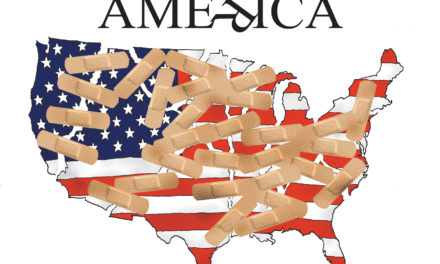It is understandable that African-Americans frequently feel more like prisoners of history than participants in it.
After all, for more than a century, they were denied a voice – not to mention a vote – in public decisions that shaped their lives and determined their futures.
Because of it, they discovered the lesson always learned by minorities in America: Solidarity at the ballot box commands attention to the issues that are important to them.
Majority Rule
This solidarity remains just as important today on national issues as it always has, because it keeps equal rights and economic justice on the national agenda. And yet, something remarkable has taken place here at home.
African-Americans are no longer a minority and no longer are they required to approach issues in the same way that they did when they were. From electing the first African-American to a citywide office less than two decades ago, there are now African-Americans in the mayors’ office, a majority on Memphis City Council, a majority on Memphis City Schools Board of Commissioners, and a majority on Shelby County delegation of the Tennessee Legislature.
Most of all, Memphis is the first majority African-American metropolitan area in the entire country, and this single statistic convinces some national commentators to predict that Memphis cannot succeed.
Proving Them Wrong
As a result, we have a historic opportunity in Memphis – to prove them wrong, that being a majority African-American region is not the prescription for failure.
This is a test for our city that we cannot ignore. It also is one we cannot afford to fail.
It calls on us to have serious discussions and honest debates about the future. It calls on us to consider new ideas, new directions, and new thinking.
Debate Is Good
Elections perform this crucial role, giving us the opportunity to hear different plans for Memphis’ future and to inspire actions that set our city on a positive direction.
And yet, there are some in Memphis who suggest that once an African-American is elected to high office, it should be treated as his until he gets tired of it. It is patronizing at its best and self-destructive at its worst.
It perpetuates the myth that African-Americans are monolithic and rigid and diminishes their impact on the development of policies affecting economic growth, our safety, and our neighborhoods.
The “Real” Deal
Key to Memphis’ future is making the right choices, but we’ll never know what they are if the malignant notion is accepted that African-Americans should not oppose each other for the city’s highest offices and they should simply acquiesce to the road chosen for them.
It’s as if some people believe that now that African-Americans are the majority, they can’t really be trusted with the full responsibilities of democracy, they can’t have “real” campaigns with opposing views and alternative positions, and they can’t handle the choices that are our rights as Memphians.
The truth is choices are what make a democracy great. It’s also what can make Memphis great again.
Healthy Attitudes
But first, it requires African-Americans to adopt the attitude of the majority, an attitude that doesn’t fear choices or options, an attitude that welcomes debate, dialogue, and discussion. It requires them to broaden perspectives beyond the political realities of the past and to give birth to a healthy confidence in their abilities to control their own destiny.
We were reminded of how hard it is to shake off the traditions of history when Shelby County Mayor A C Wharton considered an entry into the Memphis mayor’s race. Old ways of thinking immediately surfaced with charges that Mayor Wharton’s candidacy would create division and divisiveness.
It makes about as much sense as when Dr. King was accused of bringing hate to Selma. The division in Memphis is already there, deep and troubling. The answer is not to pretend like it doesn’t exist, but to lance the boil with the most power medicine at our disposal – the ballot box.
Memphis is on a historic journey toward the future. No longer are African-Americans mere spectators to history. Now, they have the chance to write it for themselves.



